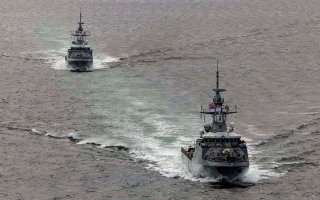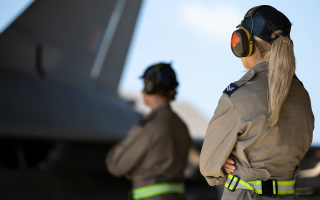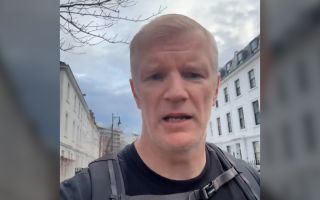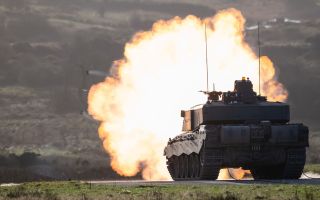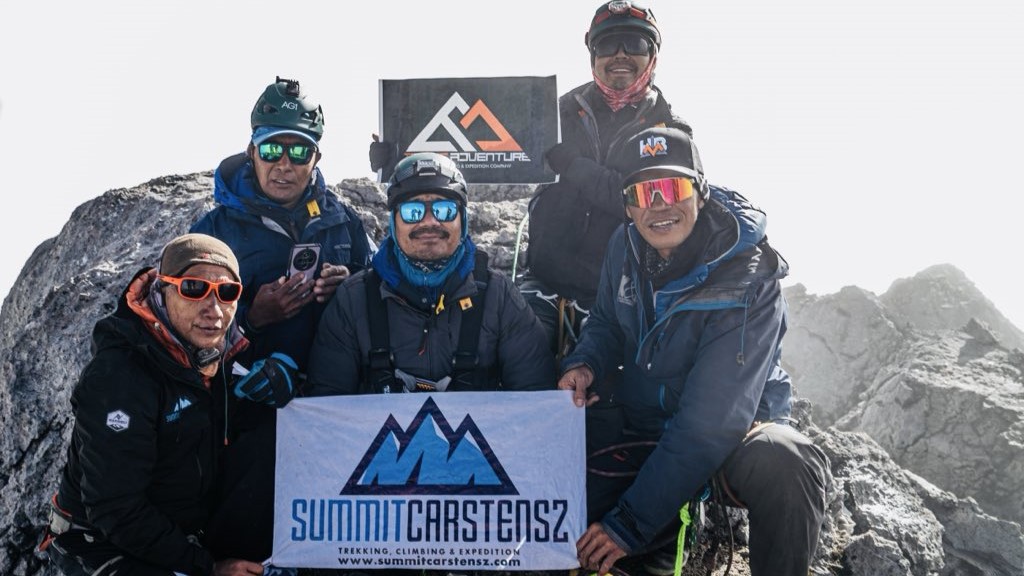
Hari Budha Magar: It's six out of seven for record-breaking double amputee Gurkha veteran

A Gurkha veteran who lost both his legs while serving in Afghanistan has made mountaineering history again by becoming the first double above-knee amputee to reach the top of the Carstensz Pyramid.
Hari Budha Magar's climb of the 4,884-metre peak, the highest peak in Indonesia and Australasia, is part of his incredible challenge to reach the Seven Summits, the highest mountains on each of the seven traditional continents.
The veteran said in a post on X, he found Carstensz "one of the most technical mountain of Seven Summits, but with help of my team, we made it".
- Double amputee veteran becomes first person to reach Everest Base Camp with above-the-knee prosthetics
- Double amputee Gurkha veteran training for Mount Everest first
- Royal Marine takes on Guinness World Record attempt with fridge on his back
"This climb was a part of my Seven Summits climb, which marks the sixth of Seven Summits," he said.
"This campaign is for making awareness of disability and inspiring others to climb their own mountains and conquer their dreams."
Hari plans to tackle the seventh of the Seven Summits in December, taking on the 4,892-metre Mount Vinson in Antarctica.
He conquered Everest in May 2023, the first of the Seven Summits, setting another record as the first double above-knee amputee to summit the highest mountain in the world.
After he reached the summit of Everest, he said: "This experience has really hit home for me that if we are passionate, disciplined, work hard and believe in ourselves, nothing can stop us from achieving our dream.
"We proved that nothing is impossible."
The Everest journey took Hari and his team 25 hours from Camp Four to the summit and back.
Hari said at the time: "The journey wasn't easy, we had to make some tough decisions along the way, but we made it.
"The climb didn't go entirely to plan because of weather conditions.
"Oxygen supplies ran low and some people had to turn back for their and teams' overall safety.
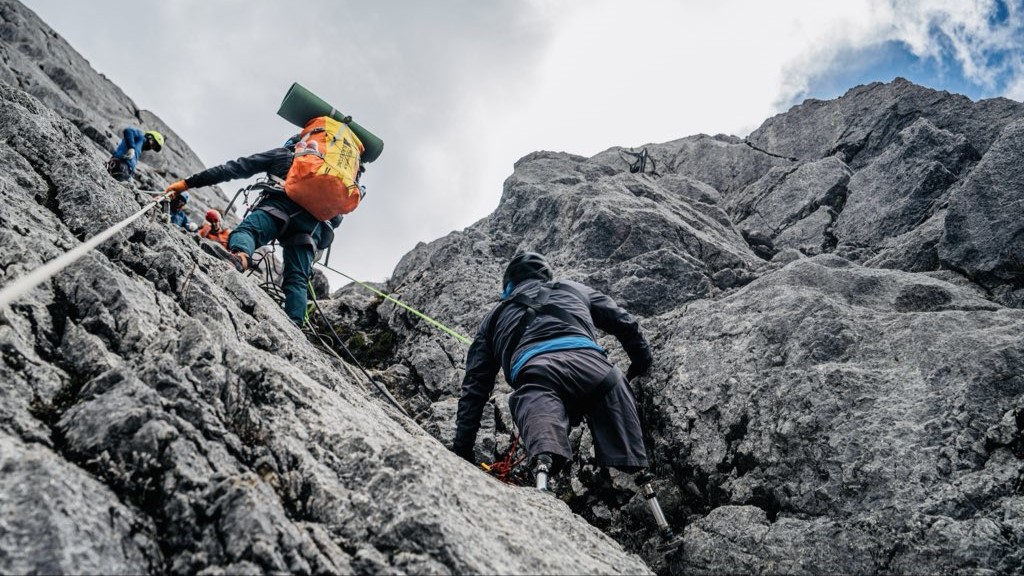
"I also wanted to give up at least three times when half of [my] team had gone.
"The Sherpas, which included my brother, reassured me we could make it and the oxygen will last but even they could not predict how long conditions would delay and supplies would run low.
"As a team we pushed hard and five us made it to the summit.
"My brother, Nanda Bahadur Budha Magar, Mingma Sharpa, Pasang Sherpa, Jit Bahadur Tamang, and I, did it.
"We reached the top of the world.
"We just had to carry on and push for the top, no matter how much it hurt or how long it took.
"If I can climb to the top of the world then anyone, regardless of their disability, can achieve their dream.
"No matter how big your dreams, no matter how challenging your disability, with the right mindset, anything is possible."
Hari grew up in the Nepalese mountains and scaling Everest was a boyhood dream.
He served 15 years as a corporal with the Gurkha Regiment, but in 2010 lost his legs when he stepped on an improvised explosive device (IED) in Afghanistan.
Through his epic climb, Hari was attempting to fundraise £884,900 – the equivalent of 100 times the height of Everest.
The money helped five charities that aided him with his recovery: The Gurkha Welfare Trust, On Course Foundation, Blesma, Pilgrim Bandits and Team Forces.
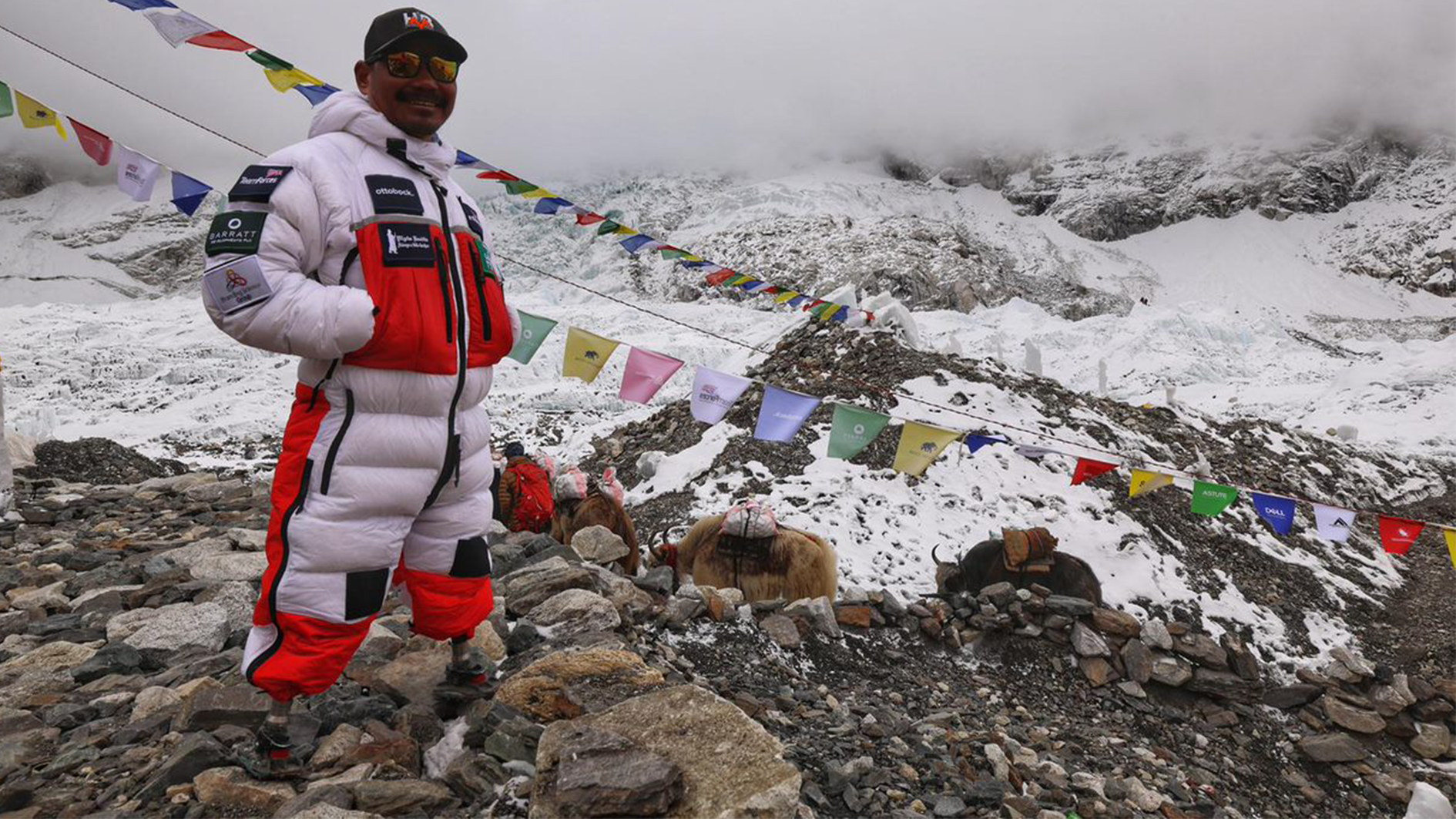
Joining Hari was expedition leader Krish Thapa who is a world-class high-altitude mountaineer and ex-SAS mountain leader.
Krish was one of the first members of The Royal Gurkha Rifles to pass selection into the British SAS, serving as head of Mountain Troop.



